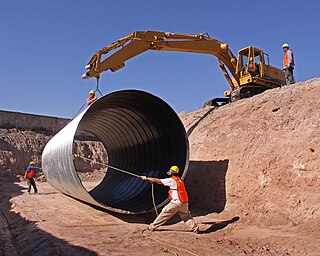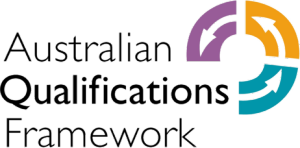Related Research Articles
Technical and further education or simply TAFE is the common name in English-speaking countries in Oceania for vocational education, as a subset of tertiary education. TAFE institutions provide a wide range of predominantly vocational courses.

A stockbroker is an individual or company that buys and sells stocks and other investments for a financial market participant in return for a commission, markup, or fee. In most countries they are regulated as a broker or broker-dealer and may need to hold a relevant license and may be a member of a stock exchange. They generally act as a financial advisor and investment manager. In this case they may also be licensed as a financial adviser such as a registered investment adviser.

An electrician is a tradesperson specializing in electrical wiring of buildings, transmission lines, stationary machines, and related equipment. Electricians may be employed in the installation of new electrical components or the maintenance and repair of existing electrical infrastructure. Electricians may also specialize in wiring ships, airplanes, and other mobile platforms, as well as data and cable lines.

Workers' compensation or workers' comp is a form of insurance providing wage replacement and medical benefits to employees injured in the course of employment in exchange for mandatory relinquishment of the employee's right to sue his or her employer for the tort of negligence. The trade-off between assured, limited coverage and lack of recourse outside the worker compensation system is known as "the compensation bargain.” One of the problems that the compensation bargain solved is the problem of employers becoming insolvent as a result of high damage awards. The system of collective liability was created to prevent that and thus to ensure security of compensation to the workers.

Professional diving is underwater diving where the divers are paid for their work. The procedures are often regulated by legislation and codes of practice as it is an inherently hazardous occupation and the diver works as a member of a team. Due to the dangerous nature of some professional diving operations, specialized equipment such as an on-site hyperbaric chamber and diver-to-surface communication system is often required by law, and the mode of diving for some applications may be regulated.
Banking in Australia is dominated by four major banks: Commonwealth Bank, Westpac, Australia & New Zealand Banking Group and National Australia Bank. There are several smaller banks with a presence throughout the country which includes Bendigo and Adelaide Bank, Suncorp Bank, and a large number of other financial institutions, such as credit unions, building societies and mutual banks, which provide limited banking-type services and are described as authorised deposit-taking institutions (ADIs). Many large foreign banks have a presence, but few have a retail banking presence. The central bank is the Reserve Bank of Australia (RBA). The Australian government’s Financial Claims Scheme (FCS) guarantees deposits up to $250,000 per account-holder per ADI in the event of the ADI failing.

The Australian Qualifications Framework (AQF) specifies the standards for educational qualifications in Australia. It is administered nationally by the Australian Government's Department of Industry, with oversight from the States and Territories, through the Standing Council of Tertiary Education Skills and Employment. While the AQF specifies the standards, education and training organisations are authorised by accrediting authorities to issue a qualification.
TAFE NSW is an Australian vocational education and training provider. Annually, the network trains over 500,000 students in campus, workplace, online, or distance education methods of education. It was established as an independent statutory body under the TAFE Commission Act 1990. The Minister for Regional Development, Skills and Small Business is responsible for TAFE NSW.
Alcohol server training is a form of occupational education typically provided to servers, sellers and consumers of alcohol to prevent intoxication, drunk driving and underage drinking. This training is sometimes regulated and mandated by state and local laws, predominantly in North America, and increasingly in other English-speaking countries such as Australia. In some places, such as Australia, gaining such qualifications is required by law, before one can work to sell alcohol.

The Australian Chamber of Commerce and Industry (ACCI) is Australia's largest and most representative business association, comprising state and territory chambers of commerce and national industry associations. ACCI represents Australian businesses of all shapes and sizes, across all sectors of the economy, and from every corner of the country.

Pyrotechnicians are people who are responsible for the safe storage, handling, and functioning of pyrotechnics and pyrotechnic devices. Although the term is generally used in reference to individuals who operate pyrotechnics in the entertainment industry, it can include all individuals who regularly handle explosives. However, individuals who handle more powerful materials for commercial, demolition, or military applications are generally referred to as explosive technicians.
The Gliding Federation of Australia (GFA), also known as Gliding Australia, is the governing body for the sport of gliding in Australia. It was founded in 1949. The GFA is responsible to Civil Aviation Safety Authority for the conduct of safe gliding operations in Australia. This includes the setting and maintenance of flying standards and in particular training standards, for gliding and soaring flight in heavier-than-air fixed-wing gliders and sailplanes, powered sailplanes and touring motor gliders, but excluding flexible wing, weight shift hang gliders and paragliders.

The Australian Hotels Association (AHA) is a federation of not-for-profit employer associations in the hotel and hospitality industry, registered under the Fair Work Act and respective State Laws. The AHA's role is to further and protect the interests of its members throughout Australia which are employers and can be owners, operators or lessees of hotels, bars and other hospitality businesses. The areas of focus include accommodation, food, beverages, entertainment, wagering and gaming; the maintenance of the law; promotion of business activity, education, training and advocating the economic and social benefits of the industry.

Driver licences in Australia refer to the official permit required for a person to legally drive a motor vehicle in Australia. The issue of driver licences, alongside the regulation and enforcement of road use, are all managed by state and territory governments.

The Australian Tertiary Admission Rank (ATAR) for all domestic students, or the ATAR-based Combined Rank (CR) for all International Baccalaureate (IB) students, are the primary criteria for determining the Selection Rank (SR) for admission into undergraduate courses in Australian public universities. Domestic Students are students who are Australian or New Zealand citizens, or Australian permanent residents, or the holder of long-term refugee visa. ATAR & CR are not applicable for international students as they must apply directly to each university separately and their SR is calculated by the university. The ATAR is calculated by each state or territory's own state-level Tertiary Admission Center (TAC) for all domestic students studying within their geographical limits. Interstate Domestic Students must apply to the TAC of their respective state. The Selection Rank is calculated by each University separately based on the ATAR or CR as well as additional points for each university's unique criteria such as a student's educational disadvantage or subject performance. ATAR is not a mark, but rather a percentile ranking between 0.00 and 99.95 which shows the student’s relative position compared to all other students in the range of 16 to 20 years old who would have completed their respective year 12 exams in that state in a year.

The Builders Labourers Federation (BLF) was an Australian trade union that existed from 1911 until 1972, and from 1976 until 1986, when it was permanently deregistered in various Australian states by the federal Hawke Labor government and some state governments of the time. This occurred in the wake of a Royal Commission into corruption by the union. About the same time, BLF federal secretary Norm Gallagher was jailed for corrupt dealings after receiving bribes from building companies that he used to build a beach house.

The Taxi Industry Inquiry or the Fels Inquiry was an inquiry commissioned in 2011 into the taxi industry and taxi services in Victoria, Australia, by the Taxi Services Commission. The inquiry was headed by Professor Allan Fels assisted by Dr David Cousins.
Digital identity is used in Australia by residents to validate who they are over digital media, such as over the Internet.

The Construction Skills Certification Scheme (CSCS) is a British company that runs a training and qualification verification scheme of the same name for the British construction industry. CSCS is the leading skills certification scheme within the UK construction industry and CSCS cards provide proof that individuals working on construction sites have the appropriate training and qualifications for the job they do on site. By ensuring the workforce are appropriately qualified the card plays its part in improving standards and safety on UK construction sites. Holding a CSCS card is not a legislative requirement. It is entirely up to the principal contractor or client whether workers are required to hold a card before they are allowed on site. However, most principal contractors and major house builders require construction workers on their sites to hold a valid card.
EML Group is one of the oldest Australian personal injury insurers with history dating back to 1910. The service range of this company is only in Australia, with over 3,500 specialists operating in New South Wales, South Australia and Victoria. The head office of this company is in Sydney. Other branches are distributed in Brisbane in Queensland, Parramatta, Newcastle, Tweed and Gosford in New South Wales, and a South Australian branch in Adelaide.
References
Citations
- ↑ Chawla, Sehaj (11 March 2022). "Do I Need a NSW Construction Industry White Card?". Vigil Training College. Retrieved 13 May 2023.
- ↑ "White cards (CIC)". SafeWork NSW. WorkCover Authority of NSW. Retrieved 17 March 2017.
- ↑ SA, SafeWork (29 January 2020). "White card". SafeWork SA. Retrieved 31 July 2023.
- ↑ "training.gov.au - CPCWHS1001 - Prepare to work safely in the construction industry". training.gov.au. Retrieved 31 July 2023.
- 1 2 3 4 5 6 7 Shaw 2022.
- ↑ "White Card WA - Western Australia - Official Online Course".
Bibliography
- Shaw, Jacob (2022). "What is a White Card?". Tradie Training. Retrieved 21 June 2022.